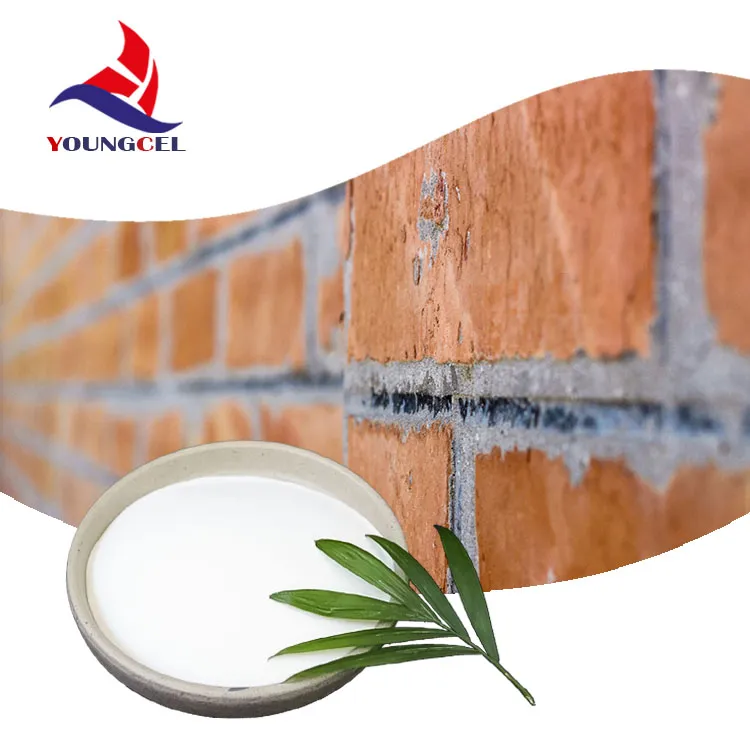Tile Adhesive Mortar and Redispersible Powder (RDP) An Overview
In modern construction and renovation processes, the materials utilized for bonding tiles significantly impact the overall quality and longevity of the installation. One of the essential components in tile adhesive formulations is Redispersible Powder (RDP). This innovative material has revolutionized the way tile adhesives are manufactured, enhancing their performance and usability.
RDP is a water-soluble polymer powder that is added to cement-based tile adhesive mortars. When the adhesive is mixed with water, the RDP particles rehydrate and form a flexible film, enabling enhanced adhesion between the tile and the substrate. The use of RDP in tile adhesive mortars is particularly beneficial due to its multiple performance enhancements, including improved workability, increased adhesive strength, and enhanced flexibility.
One of the primary advantages of incorporating RDP into tile adhesive mortars is the enhanced workability it provides. RDP increases the viscosity of the adhesive, making it easier to apply and adjust during installation. This characteristic is especially valuable when working with large-format tiles, as it allows for greater manipulation of the tiles before the adhesive sets. Installers can achieve better alignment and reduce the likelihood of errors during the installation process.
tile adhesive mortar redispersible powder rdp

Furthermore, the adhesion properties of RDP-enhanced tile adhesives are superior compared to traditional formulations. The flexible film formed by RDP allows for better bond strength, providing a durable connection that can withstand stress and thermal movement. This is particularly important in areas subject to temperature fluctuations, such as bathrooms and kitchens. The flexibility imparted by RDP helps prevent cracking and detachment, ensuring a long-lasting installation.
RDP also contributes to the water resistance of tile adhesive mortars. By creating a hydrophobic network within the mortar, RDP helps to minimize water penetration, which can be crucial in preventing damage in moisture-prone areas. This attribute makes RDP-containing tile adhesives an excellent choice for use in wet environments, such as swimming pools and shower stalls.
In addition to these practical benefits, RDP is environmentally friendly. Many manufacturers produce RDP from renewable resources, making it a sustainable choice for construction projects. Moreover, the incorporation of RDP can reduce the overall amount of cement required in the adhesive mix, which is beneficial for reducing carbon emissions associated with cement production.
In conclusion, the integration of Redispersible Powder into tile adhesive mortars represents a significant advancement in construction technology. With its ability to enhance workability, adhesive strength, flexibility, and water resistance, RDP has become a key component in modern tile installations. As the demand for high-quality and durable construction materials continues to grow, RDP will undoubtedly play an integral role in shaping the future of tile adhesive solutions.
-
Rdp Powder: Key Considerations for Wholesalers in the Building Materials IndustryNewsJul.08,2025
-
Key Considerations for Wholesalers: Navigating the World of Hpmc - Based ProductsNewsJul.08,2025
-
Hpmc Detergent: Key Considerations for WholesalersNewsJul.08,2025
-
Key Considerations for Wholesalers: China Hpmc For Tile Adhesive, Coating Additives, Concrete Additives, and MoreNewsJul.08,2025
-
Crucial Considerations for Wholesalers: Navigating the World of Construction MaterialsNewsJul.08,2025
-
Key Considerations for Wholesalers Sourcing Additive For Cement, Additive For Concrete, Additive For Putty from Additive Manufacturer Shijiazhuang Gaocheng District Yongfeng Cellulose Co., Ltd.NewsJul.08,2025




